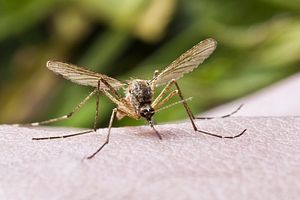In Malaysia, the signs are ominous. The coming wet season is already shaping up as potentially the worst on record for dengue fever with regional governments stepping up efforts to limit the spread of the potentially deadly disease.
Twenty-two people have already died in Malaysia this year from dengue, almost triple the number when compared with the same period a year ago, putting the country on track to beat the record of 134 deaths in 2010.
A debilitating and painful disease, dengue fever occurs the world over. More than 100 million cases of the mosquito-borne disease are reported each year with dengue hemorrhagic fever and dengue shock syndrome proving to be the deadliest.
Authorities say three billion people live in regions of the world susceptible to dengue and that includes the 600 million people who live in Southeast Asia. According to the Indonesian Health Ministry, Indonesia ranked first in the number of dengue cases across ASEAN with more than 90,000 cases in 2013.
Vietnam and Cambodia, with substantially smaller populations, held second and third places with 86,000 and 42,000 cases, respectively.
It is transmitted by the Aedes aegypti mosquito and the World Health Organization has labeled the disease as one of the fastest-growing viral threats globally. There is no vaccine, hence prevention focuses on mosquito control.
The increasing threat arose as the HDI Group of Companies Indonesia said it would conduct a second set of clinical trials this year of its propolis honey-based treatment for dengue hemorrhagic fever.
It said this followed successful trials on 50 dengue fever patients at a hospital in East Jakarta.
“We want to help the government and the people because Indonesia always has to face the outbreak of this disease every single year. We are hoping that what we do today can save lives in the future and help speed up the recovery of patients,” HDI product development director Alva Paloma told local media.
Propolis is a resinous substance produced by bees. Patients who received 300 milligrams of propolis honey extract a day have showed signs of improvement within two to four days.
Other initiatives include the Eliminate Dengue Project-Yogya which involves the release of Aedes aegypti mosquitoes carrying the Wolbachia bacterium, which prevents transmission of the virus. The Gadjah Mada University’s (UGM) School of Medicine hopes will all scientists to naturally control the outbreak of dengue fever.
Luke Hunt can be followed on Twitter @lukeanthonyhunt

































